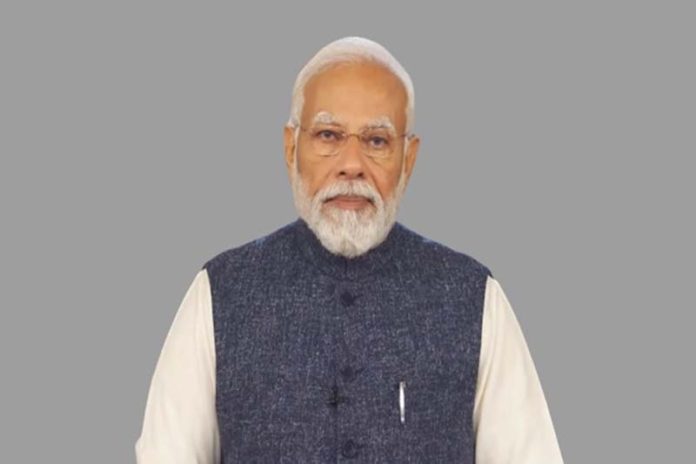No decision yet on caste census
NEW DELHI, Sept 15: The BJP-led NDA Government will implement ‘one nation, one election’ within its current tenure, sources said, exuding confidence that the reform measure would receive support across party lines.
Follow the Daily Excelsior channel on WhatsApp
As the third term of the NDA Government led by Prime Minister Narendra Modi completes 100 days in office, the sources said that the cohesion within the ruling alliance will continue for the rest of the tenure.
“Definitely, it will be implemented in this tenure itself. It will be a reality,” one source said, speaking on condition of anonymity.
In his Independence Day address last month, the Prime Minister made a strong pitch for ‘one nation, one election’, contending that frequent polls were creating hurdles in the country’s progress.
“The nation has to come forward for ‘one nation, one election’,” Modi had said in his address from the ramparts of the Red Fort.
The Prime Minister urged the political parties “from the Red Fort and with the national tricolour as a witness to ensure the nation’s progress”.
He also asked the parties to ensure that national resources are used for the common person and said, “We have to come forward to realise the dream of one nation, one election.”
‘One nation, one election’ is one of the key promises made by the BJP in its manifesto for the Lok Sabha elections.
A high-level panel headed by former President Ram Nath Kovind in March this year recommended simultaneous elections for the Lok Sabha and State Assemblies as the first step followed by synchronised local body polls within 100 days.
Separately, the Law Commission is likely to recommend holding simultaneous polls for all three tiers of Government — Lok Sabha, State Assemblies and local bodies like Municipalities and Panchayats — starting with 2029 and a provision for unity Government in cases like hung house or no-confidence motion.
The Kovind panel has not specified any period for rolling out simultaneous polls.
It has proposed creation of an Implementation Group to look into the execution of the panel’s recommendations.
The panel recommended as many as 18 constitutional amendments, most of which will not need ratification by the state assemblies.
However, these would require certain Constitution amendment bills that would need to be passed by Parliament.
Meanwhile, the Government has started preparations for conducting the decadal census, but a decision is yet to be taken on including a column on caste as part of the exercise, sources said on Sunday.
Speaking on condition of anonymity, one source said that the decadal census will be conducted soon.
India has conducted the census every 10 years since 1881.
The first phase of this decade’s census was expected to begin on April 1, 2020 but had to be postponed due to the COVID-19 pandemic.
The implementation of the Women’s Reservation Act, enacted by Parliament last year, too is linked to the conduct of the decadal census.
The law reserving one-third of seats for women in the Lok Sabha and State Assemblies shall come into effect after an exercise of delimitation is undertaken based on the relevant figures of the first census recorded after the Act has come into force.
“This is yet to be decided,” the source said when asked about inclusion of a column on caste in the decadal census.
The political parties have been making vociferous demands for conducting a caste census.
In the absence of fresh data, the Government agencies are still formulating policies and allocating subsidies based on the data of the 2011 census.
The house listing phase of the census and the exercise to update the National Population Register (NPR) were scheduled to be carried out across the country from April 1 to September 30, 2020 but it was postponed due to the Covid-19 outbreak.
The entire census and the NPR exercise is likely to cost the Government more than Rs 12,000 crore, the officials said.
This exercise, whenever it happens, will be the first digital census giving the citizens an opportunity to self-enumerate.
The NPR has been made compulsory for the citizens, who want to exercise the right to fill the census form on their own rather than through Government enumerators.
For this, the census authority has designed a self-enumeration portal, which is yet to be launched.
During self-enumeration, Aadhaar or mobile number will be mandatorily collected.
The Office of the Registrar General and Census Commissioner had prepared 31 questions to be asked. Those questions include whether a family has a telephone, internet connection, mobile or smartphone, bicycle, scooter or motorcycle or moped, whether they own a car, jeep or a van. (PTI)


